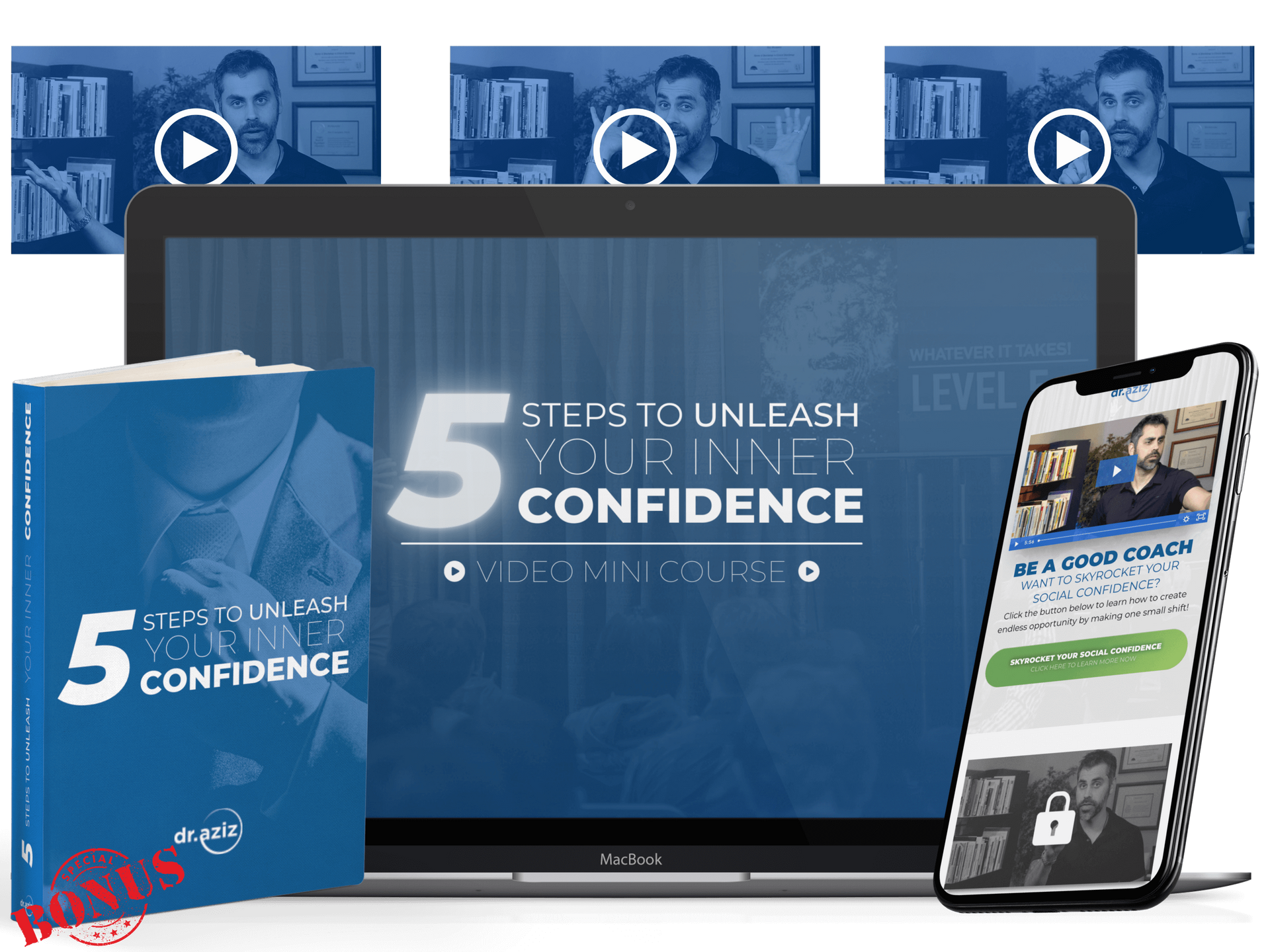How To Feel Confident Even When You Suck At Something
Mar 27, 2022Everyone’s good at something, right? Sports, music, math, friendship, parenting—each of us has his or her own unique skill set that allows us to remain confident in at least that one area, even when things aren’t going smoothly.
What about when we’re not good at something?
Is it possible to stay confident then?
This was the question that was posed to me recently by a viewer:
What if I’m not good at dancing or public speaking or singing?
What if I’m not good at expressing myself or knowing what to say or starting conversations with new people?
How am I supposed to develop confidence for situations like parties, weddings, and other social gatherings if I don’t feel like I’m good at any of the skills they call on?
I’m going to let you in on a secret: competence may help confidence . . . but it doesn’t define it.
FACT: if we went around doing only the things we were naturally good at, society would cease to function entirely.
The reality is that there are many sources of confidence. Nobody is good at EVERYTHING, but there are plenty of people out there who have enough confidence to make it through each day with no issues whatsoever.
The real problem here isn’t that you’re not good enough or skilled enough—it’s that you don’t believe in yourself enough to embrace a beginner’s mindset.
When you’re mired in insecurity and anxiety, it is almost impossible to allow yourself to risk failure or embarrassment. Hence, we’re often terrified of trying anything new. And if you’re never willing to try anything new, your potential for learning disappears.
Even the most skilled practitioner can benefit from a beginner’s mindset when it comes to revisiting fundamentals and viewing mastery from a new perspective.
In many ways, we’re all beginners at something. And that’s a good thing! After all, that’s the only path to change, growth, and revolution.
So, how do we begin to shift our mindset to allow that beginner’s mentality back into our field of learning? The first thing we have to do is question our aversion to it.
When was it that you first let in the idea that being a beginner was somehow wrong?
Consider this: nobody is born believing that newness is a bad thing. It’s something we’re taught to buy into over time. Whether we’re mocked as children, chided as adolescents, or shamed as adults, society has a tendency to treat newness like it’s a weakness—and it’s not.
This is a concept I’ve had to revisit myself as a parent. Often, we have so much on our plates that we don’t want to let our children try new things. We’re always sure it’s just going to be one more mess we have to clean up. One example of this is that I was once very resistant to letting my boys help me cook. They wanted to crack eggs, and all I saw in my mind was dried egg everywhere. My wife, Candace, however, was like, “Well, how will they ever learn if you don’t teach them?”
Good point.
So, now, when they want to learn, I just do my best to set them up for success. You want to crack the eggs? Ok, let’s do it into a bowl. You want to whisk the eggs? Ok, let’s do it in a very BIG bowl.
With every new step they take, they develop the confidence that will allow them to master another skill down the road.
This process is the exact same with adults.
The belief that we need to be good at everything is instilled in us as a result of thousands of tiny instances that are seemingly so insignificant that we hardly even notice them. One day, we just wake up and believe that we’re not allowed to make mistakes or go too slowly because other people will get frustrated and angry with us.
So how do we shift that mentality to allow some newness positivity into our lives?
Firstly, we have to break that habit of being so tough on ourselves—and on everyone else around us.
Not a great dancer? Make fun of yourself! As long as you’re having fun, no one will care.
But what if your newness is more high-stakes than that? What if you’re learning a new skill that affects people’s lives or your own career success? Then you probably don’t want to make jokes about it . . . but you can still go easy on yourself internally and learn to encourage yourself mentally, instead of beating yourself up every time you make a mistake.
Mistakes are not the end of the world—they’re just a part of learning. It doesn’t matter how many times you fall down. What matters is how many times you get back up.
If your children were at school, would you want their teachers to yell at them every time they colored outside the lines or took too long to finish their addition and subtraction?
NO!
In fact, you’d probably set up a parent-teacher conference to discuss their mistreatment with the principal of the school! When your kids are learning, you want them to be guided constructively; you want them to be encouraged; you want their growth to be tended to with care and patience.
So, why don’t we treat ourselves with the same consideration?
If you really want to develop as a person—and maintain the confidence you’ve been working so hard to develop—then you must treat yourself with love and kindness.
This is something I discuss in great detail in my book, On My Own Side. True, unbreakable confidence that emanates from within can only be fostered if you learn how to stop fighting against yourself. That is why this book is all about learning to love yourself, root for your own success in a more positive way, and generally get on your own side.
If you go through life waiting to get good at something before you even try to learn it, you’ll never experience anything new!
So, the next time you want to chide yourself for doing something wrong or taking “too long” to grasp a concept, consider dropping the impatience and frustration. Instead, try nurturing yourself as you would a child who deserves to learn new things and grow to his or her fullest potential.
Commit to treating yourself the way you’d want anyone else to treat your children . . . especially as you go into new situations. You will be amazed at the newfound levels of relaxation, peace, and ease with which you approach life and all of its offerings.
Beginnings are a blessing—and if you allow yourself to embrace them, you might even learn to enjoy them along the way!
As always, I ask that you please share your experiences and questions in the comments below. Awesome. What is something new you’d like to try? What activities do you miss out on because you’re too afraid to become a beginner? Let’s continue to support each other in this community as we individually work toward our ultimate confidence!
Until we speak again, may you have the courage to be who you are and to know on a deep level that you’re awesome.
Reading blogs and watching videos online is a start...
When you are ready to radically transform your confidence so you speak up freely, boldly go after what you want, connect easily with others and be 100% unapologetically yourself, coaching is the answer.



